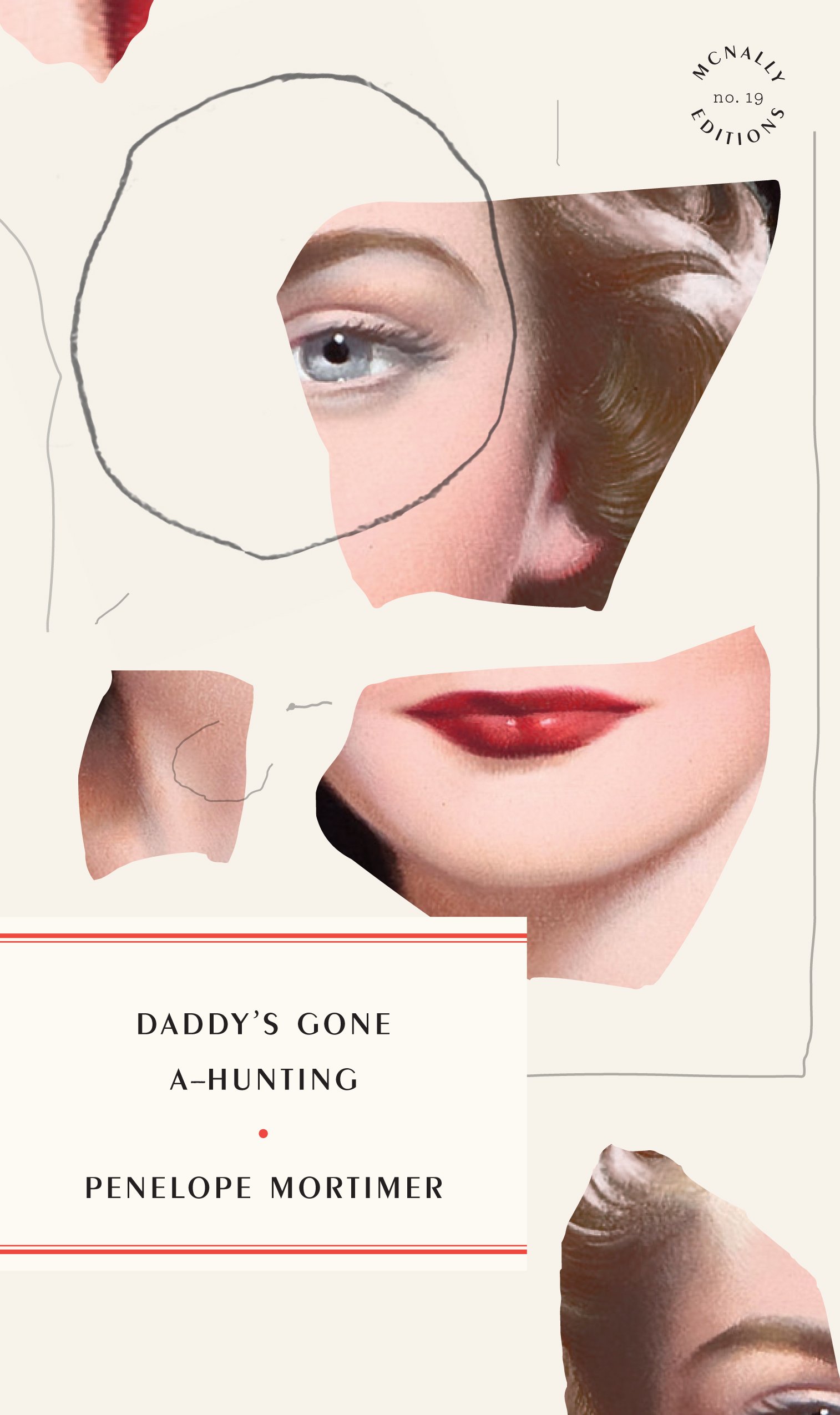Daddy's Gone A-Hunting
Penelope Mortimer
A breakthrough novel of suburban loneliness and subversion—“her style, spare and singular, cuts through the decades like a scalpel” (Rachel Cooke, The Observer)
Penelope Mortimer
A breakthrough novel of suburban loneliness and subversion—“her style, spare and singular, cuts through the decades like a scalpel” (Rachel Cooke, The Observer)
Penelope Mortimer
A breakthrough novel of suburban loneliness and subversion—“her style, spare and singular, cuts through the decades like a scalpel” (Rachel Cooke, The Observer)
A bourgeois housewife, Ruth Whiting, is “paralysed by triviality,” measuring out her days in coffee mornings, glasses of sherry, and bridge parties—routines that barely disturb the solitude of her existence. Her husband spends his weeknights in town; their daughter, eighteen-year-old Angela, is at Oxford; and their sons are at boarding school. When Angela finds herself unexpectedly pregnant, Ruth realizes that she has to do everything in her power to stop her daughter from sleepwalking into a life like her own.
First published in 1958, Daddy’s Gone A-Hunting shocked critics with its “feminine rage” (New York Times). It captures the suffocation of a repressive marriage and the desperate longing for connection between a mother and daughter who must join forces in a man’s world.
“Plangent, excoriating . . . While the novels of some of her still-celebrated male contemporaries (Kingsley Amis, say) have come to seem somewhat bombastic and dated, Mortimer’s style, spare and singular, cuts through the decades like a scalpel.”
—Rachel Cooke, The Observer
“Daddy’s Gone a-Hunting, now being reissued in the U.S., was published several years before Betty Friedan’s The Feminine Mystique. But the novel . . . appears to anticipate what Friedan proposed as ‘the problem that has no name’—the profound unhappiness of a generation of educated women trapped in the domestic sphere with no way out . . . One of the most compelling arguments for freedom of reproductive choice that I’ve ever encountered.”
—Sophie Gilbert, The Atlantic
“Mortimer peels several layers of skin off the subjects of motherhood, marriage, and monogamy.”
—Nick Hornby, The Believer
“Originally published in 1958, a full decade before abortion was legalized in the U.K., the book is as salient a study of the disparate views and persistent inequities around reproductive health care for present-day U.S. readers as it is illuminating of midcentury English attitudes and conditions. A wry dissection of domestic despair and affluent ennui and a topical introduction to Mortimer's body of literary work.”
—Kirkus Reviews (Starred Review)
“A simmering portrait of suburban malaise, originally published in 1958 . . . Mortimer (1918–1999) avoids easy answers in her nuanced take on the life of a woman who is quietly compromised. This easily earns a place on the shelf of noteworthy early feminist literature.”
“[A] searing portrait of the turmoil that ensues when a middle-aged wife and mother is forced to reckon with her young adult daughter’s coming of age.”
—Lucy Scholes, Financial Times
“Better dialogue, more deftly characterized individuals or a prose style more precise and firm is not often encountered in modern fiction. Mortimer is impressively expert.”
—Orville Prescott, New York Times
“A clinical dissection of life among the well-heeled . . . Unlike most satirists, Mortimer, for all her ruthlessness, never gets ice in the heart. Her victims never degenerate into abstract Aunt Sallies: to the bitter end they remain live, suffering individuals . . . Mortimer is a moralist who attains her ends without preaching a sermon: and that, I suspect, is one definition of a good novelist. With brilliant formal economy, sharp characterisation, and a few neatly ironic symbols, she diagnoses our modern spiritual malaise in terms of the individual. It is a remarkable and deeply disturbing achievement.”
—Peter Green, Daily Telegraph
“Mrs. Mortimer’s characters seem like people who, having beaten their wings against the gilded cage of the woman’s magazine story, have escaped into the outside world, to the mountains and deserts of suffering and love . . . a place and a life which are repellent, dreary and sad almost beyond belief, but which their creator, with tender hatred and ironical compassion, brings to vivid, appalling life.”
—J. D. Scott, The Sunday Times
Penelope Mortimer (1918–1999) was the author of nine novels; one collection of short stories; two volumes of memoir, the Whitbread Prize-winning About Time and About Time Too; and a biography of the Queen Mother. Her screenwriting credits include Otto Preminger’s Bunny Lake is Missing (1965), which she cowrote with her then-husband John Mortimer. She was also a film critic for the Observer.
Daddy's Gone A-Hunting • Paperback ISBN: 9781946022264
May 17, 2022 • McNALLY EDITIONS no. 2
5" x 8.5" • 264 pages • $18.00
eBook ISBN: 9781946022325








